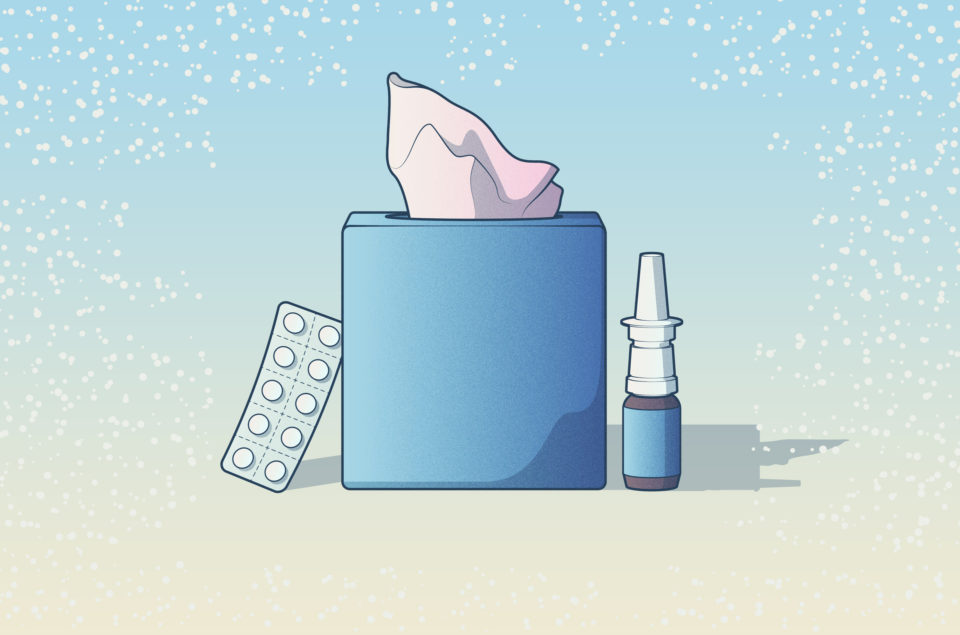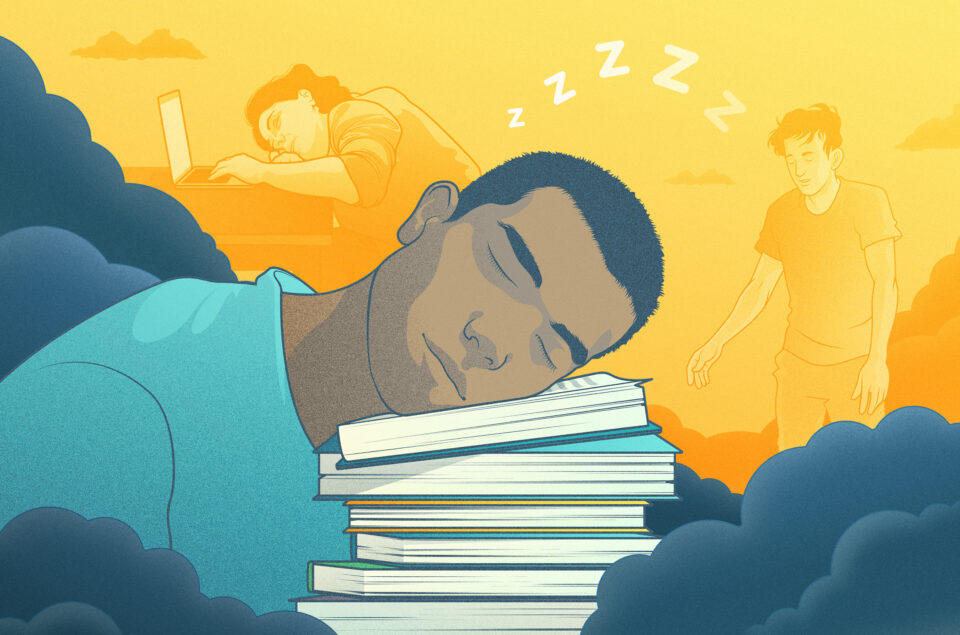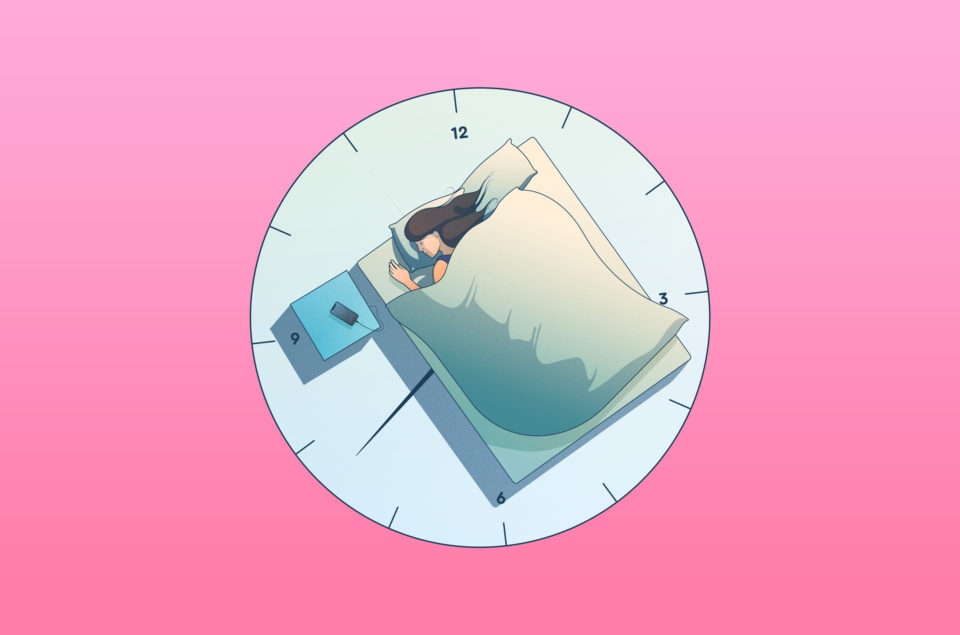Maybe. Maybe Not.
There is a broad consensus among sleep experts that most healthy adults should get a minimum of seven hours of sleep each night.
A joint consensus statement of the American Academy of Sleep Medicine and Sleep Research Society published in SLEEP and The Journal of Clinical Sleep Medicine in 2015 noted that regularly sleeping fewer than seven hours is associated with a host of adverse outcomes, including “weight gain and obesity, diabetes, hypertension, heart disease and stroke, depression, increased risk of death […] impaired immune function, increased pain, impaired performance, increased errors and greater risk of accidents.”
Sleep deficits also interfere with our cognitive functions — attention, learning and memory in particular — and our ability to manage stress.
To me, this is more than reason enough to put in at least seven hours. And yet, more than a third of Americans don’t.
For people regularly getting six hours of sleep a night, fitting in an extra hour could be transformative — maybe even life changing. But what about people who are getting seven hours of sleep each night? Or eight?
Well, that all depends.
Why is skipping sleep so bad for us?
In the course of a night, you cycle through different sleep phases. You can check both phases and the different sleep cycles yourself in the Sleep Cycle app.
Deep sleep generally occurs earlier in the night and REM sleep generally occurs later in the night. The sleep stages complement each other and their functions are interlinked. Thus, both deep sleep and REM sleep — and the order in which they occur — are important for physiological and cognitive functions.
If the sleep pressure is high — as it is when you aren’t getting enough sleep — your body will try to compensate with more deep sleep. Even though this deep sleep will feel good, continuing to restrict sleep will build on the sleep pressure and you will accumulate a sleep debt. What’s more, when you restrict sleep, you might miss out on the important processes that occur later on during the sleep period. When you skip or miss out on REM sleep, for example, you may also miss out on its benefits, which seem to include emotional processing, pain tolerance, motor skills and memory.
Not everyone need the same amount of sleep
While it’s fairly safe to assume that most people who are getting fewer than six hours of sleep each night would benefit from an extra hour of sleep, it’s also true that some people (albeit, a small minority) truly only need a few hours of sleep each night. For these people, an extra hour may not be as beneficial.
On the other hand, some adults need more than eight hours of sleep each night. So someone regularly getting seven and a half hours of sleep might find that an extra hour of sleep significantly improves both their health and quality of life.
The amount of sleep we need isn’t static
Furthermore, the amount of sleep a given individual needs isn’t static.
Sleep need changes across life and life circumstances. You definitely need more sleep as a child than you do as an adult. Sleep need might also change if you’re a pregnant woman, and you certainly require extra sleep if you exercise on the level of an athlete. When you reach the so-called golden years, you might find that you sleep less than when you were younger.
Humans can also adapt to different situations. They can, for example, reduce their sleep during periods of intense stress and more or less fully recover afterward if the period of sleep loss was not too long, not too traumatic and is followed by good recovery sleep.
Sleep habits can also vary by season. It’s common for people to sleep more in the winter and less in the summer.
So, are you getting enough?
If you want to extend your sleep, there are measures you can take. But, as is the case with the establishment of any new good habit, it does require some focus, commitment and sticking to the new routines.
First, set aside a few weeks or a month and commit to making time for at least an extra hour (or two) of sleep each night. Keep in mind that it can be difficult to sleep, even if you try. Feeling pressure to sleep can cause a lot of stress, which is counterproductive. Occasional nights of bad sleep should be expected. If you’re having difficulty falling asleep or find yourself lying in bed longer than you expected, get up and do something else. Your bed should be associated with positive feelings, so make sure that you are tired when going to bed. If you get out of bed because you can’t fall asleep, don’t do anything too arousing. Avoid bright lights, smartphones, TV and exciting books. Instead, listen to relaxing music, solve a sudoku or do something else you find relaxing.
Second, getting a good night’s sleep starts in the morning. Getting outside early in the day can help you to sleep better at night and get to sleep at the right time. Commit to regular, daily outdoor activity, even if it’s just a walk around the block. If you can manage it, budget time for at least 30 minutes of physical activity daily.
Third, think about if there’s anything in your evening habits that you can improve. Establish a nightly wind-down ritual. Decrease stress and alertness in the hours leading up to bedtime. Make sure to dim the lights. Take a warm bath or shower, do some relaxation exercises, listen to calm music or drink a warm beverage (make sure it doesn’t have caffeine and don’t drink too much of it to prevent unnecessary trips to the bathroom during the night). Do whatever works for you. But more importantly, cut out all work, social media, bright lights and blue-light-emitting screens (like smartphone and computer screens) in the hour before bed.
If possible, turn off your alarm clock and allow yourself to wake up naturally. Consider letting natural light into your bedroom. This is both a really strong cue to wake up and also helpful for establishing a strong circadian rhythm.
It may be that you don’t need more sleep, but a different sleep schedule, the simple act of walking 30 minutes a day, or turning off Twitter before bed. And, of course, it may well be that an extra hour of sleep is exactly what the doctor ordered to cure what ails you.
The idea is to give your body an opportunity to tell you what it needs. You might be amazed at what you find out.










